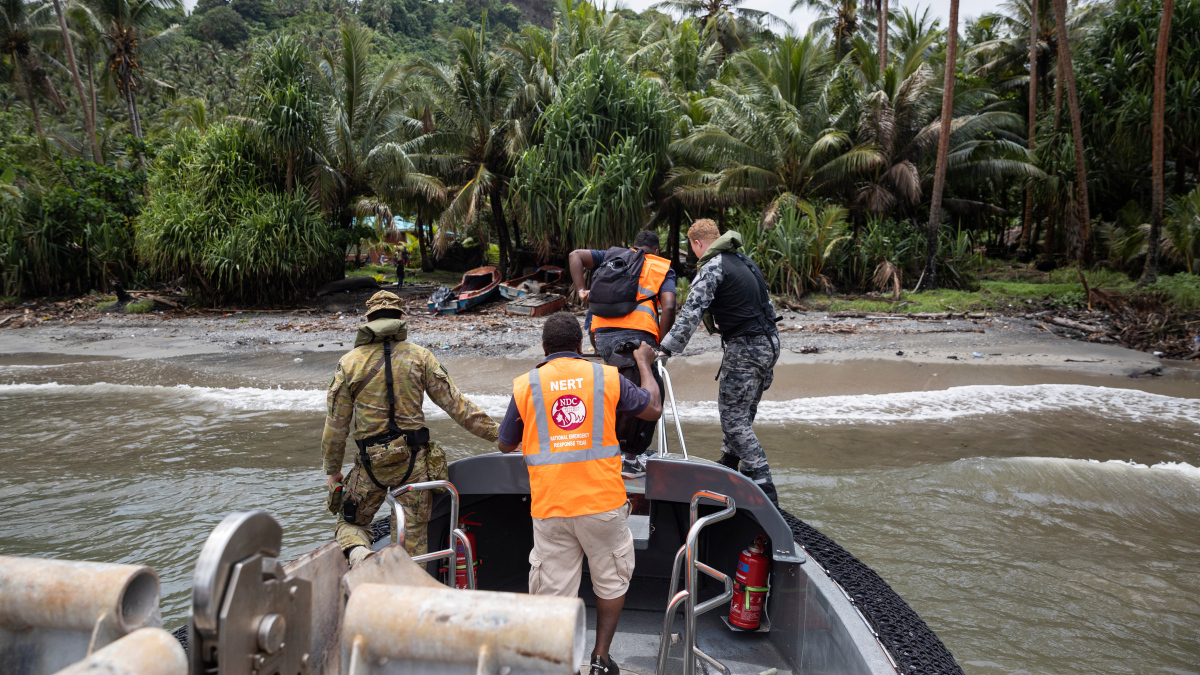Building solid relationships conducive to mutual force preservation is at the forefront of international missions. Individual attention and deliberation needs to be applied to all aspects of this relationship in order to determine the most appropriate operational response. There must be an understanding of the potential impact of delivering military training to another nation, the extent to which it will support both the donor and recipient nations’ strategic interests, and the degree to which it will result in useable skills. Key stakeholders need to find the correct balance between a workable advisory plan, without undermining Australia’s capacity to remain as impartial as the political circumstances allow. The degree of assistance rendered in an emergency needs to be appropriate to what the target country needs, what Australia is capable of providing, and what is already being delivered by other countries. With advances in technology, capabilities and knowledge, Army’s role in train, advise and assist missions with foreign nations will continue to evolve. With the media increasingly placing our military’s every action under the public spotlight, there is little tolerance for efforts to be misdirected.
In creating and developing the building blocks of a successful relationship with our neighbouring countries, and those further abroad, we need to start simply. Opening the dialogue with these nations, and allowing free-flowing communication, bridges the gap between the known and the unknown. By indicating to these strategic partners that Australia is a nation that will back promises with actions, we build rapport and reinforce our identity as a people who value transparency and proactivity. Evaluation needs to be continuous, with an enduring focus on the end result. This may entail the need for dedicated, collaborative review of the successful, developing and unsuccessful elements of any assistance effort.
Providing training to those willing to learn and improve fosters a level of trust and comradery that cannot be quantified. Deciding on the level of military instruction to be delivered overseas requires leaders to take into account the level of training that currently exists within those nations, as well as long-term sustainment needs once the intervention ceases. For example, Australian Army infantry small arms tactics, techniques and procedures are supported by policy that ensures skills remain current and soldier under training remain safe. Imparting a mindset of self-assessment and progression in those we train will help ensure that, over time, the requirement for external intervention and advice will lessen. This in turn reduces the ongoing personnel and financial liabilities on Australia.
Supplying military resources to other countries inevitably draws public scrutiny. Questions may arise as to whether the provision of training to foreign entities impedes the capacity to train our own. Further, if we provide training, are we inadvertently influencing politics in a region with the potential to detrimentally affect Australia’s international reputation? If we put ourselves in a position where we are inclined (or expected) to assist, how much help are we willing to provide? And at what point do national decision-makers determine that enough support is enough?
The modern media has ubiquitous reach and an ever increasing capacity to influence public perceptions. There are many platforms that, by their nature, solicit videos that are intended to be taken out of context. In providing any form of assistance overseas, our soldiers’ actions therefore need to be beyond criticism. As such, the Australian Army needs to conduct diversity training for its soldiers to ensure, when they interact with those from other cultures, religions, and political beliefs, they act with understanding, compassion, and respect. While the media can jeopardise Army’s reputation, equally it can positively publicise elements of support that Australia provides to its allies or others in need. Australian military support therefore holds the promise of increasing Australia’s standing among other high profile countries, whilst simultaneously showcasing the improvements that the target country has been able to achieve for itself. If recipient countries perceive external training and advice as improving their self-sufficiency and independence, then other hostile influences may be less likely to target them.
The Australian Defence Force has seen, and been involved in, humanitarian aid across the world in a range of natural disasters. In recent years, we have also been on the receiving end of such assistance with aid rendered through firefighters, supplies and equipment from countries including Canada, New Zealand, Singapore, the United States. By coming to Australia in its time of need, these countries demonstrate that our efforts for others would be reciprocated if Australia’s national interests were ever to be truly under threat. Working together, with each other’s interests in mind, offers clear direction and task focus. Sharing resources fiscally, militarily and through humanitarian aid has the added potential to fill gaps that may otherwise become strategic vulnerabilities.
Army’s role in train, advise, and assist missions with regional partners has demonstrable strategic benefits, but it also comes with risks. Mitigating those risks depends on the maintenance of accountability. For those in command, their obligation is to decide what path to take and the extent to which Australia commits assistance. In making these determinations, a main motivator should be simply the provision of help to people in need. By providing military support, the Australian Army shows compassion towards the situation and - utilising our resources, knowledge and training - operates to improve conditions that could otherwise deteriorate further with potential destabilising effects. As a middle power within our region, when Australian has the capacity to provide assistance, it should do so. When we have the ability to advise a people on methods to provide for themselves, we should do so. However, when it is not in Australia’s best interests to intervene, alternate options should be given priority. Military commitments made simply to bolster national notoriety have no place in Australian decision making. The Australian Army will continue to protect and serve Australia and its interests to the best of its ability and we should commend those who create the change we want to see across the world.
This article is a submission to the Winter Series 2023 Short Writing Competition, 'Army’s Role in Train, Advise and Assist Missions'.


